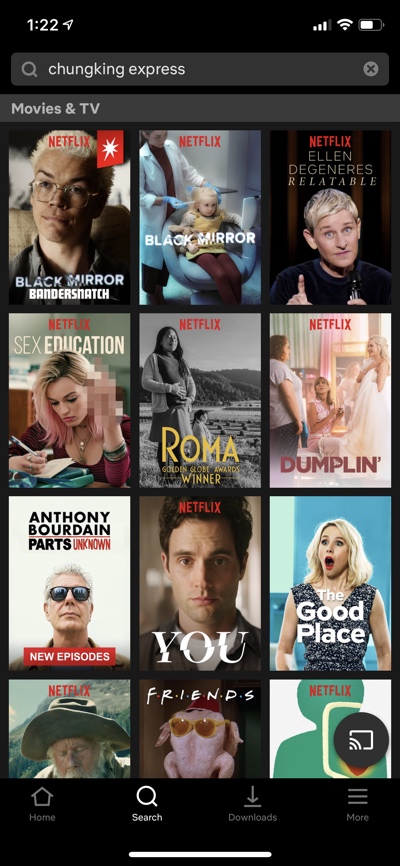Netflix and monoculture
I’ve hunted high and low for some Wong Kar Wai movies – old favorites – to re-watch this weekend but in vain. And that worries me.
Netflix got 45 million people to see Birdbox in its first week. The total viewership after a few weeks was about 80 million. It is considered an achievement (on Netflix’s part) but I wonder.
Birdbox scores 62% on Rotten Tomatoes and 6.7 on IMDB. That puts it squarely in the “avoid” bucket. Could 45 million people really not find anything better to watch? Nothing else queued up? Netflix used to be the poster child of the “long tail” promise of the internet – the promise of a future where you could find anything you wanted no matter how niche your interests, without being constrained by what a channel decided to air.
I remember being awed by their DVD selection when I first visited the US more than a decade ago, having thus far only sketchy flea markets for pirated DVDs with questionable video quality. For a brief moment in time, free distribution knocked down walls. And then someone figured out how to stand up new ones.
The screenshot below is what I see when I search for Chungking Express. It is missing, and in its place are other suggestions that seem to mainly be from the Trending or Netflix Originals sections on their home page. These totally unrelated search results aren’t even being subtle about how Netflix prefers I spend my free time.

Screenshot of Netflix search results
The internet has not removed gatekeepers. It has just created different gatekeepers – fewer, larger and more powerful. There is an over-reliance on them in the name of cheap, easy, fast. Buying DVDs or torrenting movies aren’t a thing any more, even as alternate options.
Wong Kar Wai’s movies are not even on the frontiers of the eclectic. I shudder to think about what corners of culture are getting lost to the world permanently. Ignore the front page the next time you’re looking for a movie, a book, an experience…